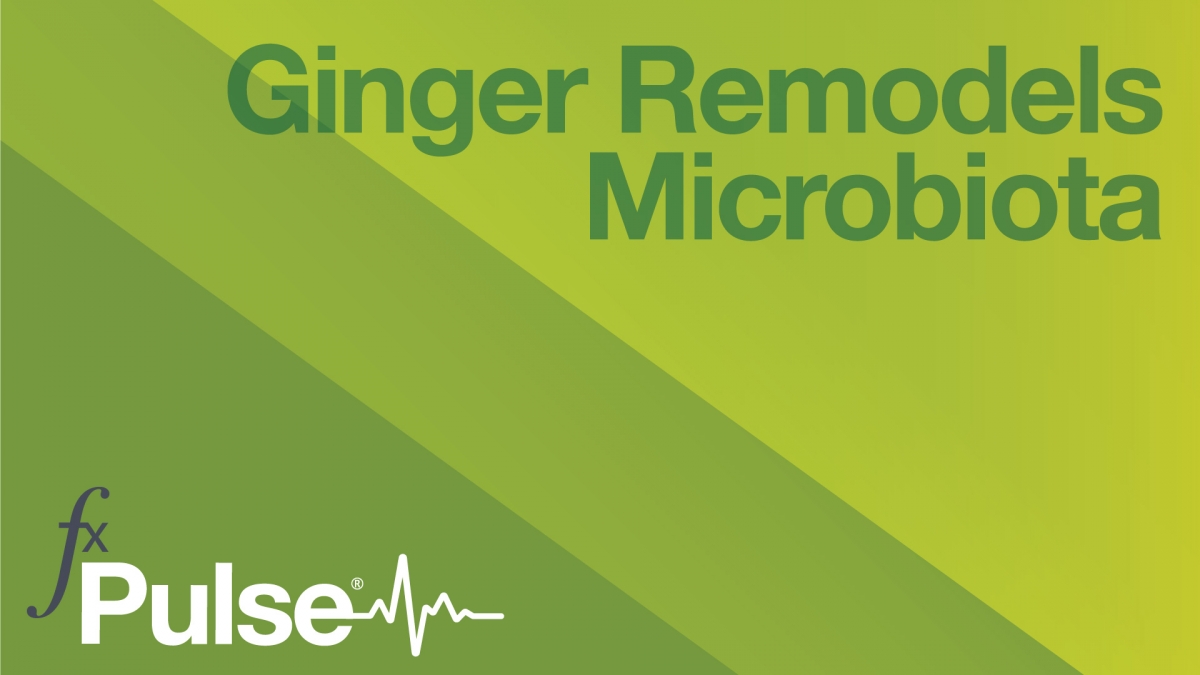It's well accepted that plant-based foods positively influence our microbiota but now new research is taking that understanding a step further and might rewrite our understanding of the term 'superfood'.
Andrew: So, a new paper's come out. What this new paper found is that plants, in this case, specifically ginger, contain these, what's called exosomal microRNAs, right? So, these packages of microRNA. And that these microRNAs, in this example, with ginger, is incorporated specifically into certain bacteria of our gut. In this example, the lactobaciliacea and particularly lactobacillus rhamnosus GG, in this instance.
And what that does is proliferate the good bugs in our gut to the point where they are able to make anti-inflammatory cytokines which eventuates, in this case in mice, in amelioration of even severe gut disease like colitis. This study was on ginger. It's by Teng et al, and it was published in October 2018 in "Cell Host & Microbe." So it's called "Plant-Derived Exosomal MicroRNAs Shape the Gut Microbiota." Really interesting paper.
Now, it follows on from previous work done by a group, the author is Deng et al in "Molecular Therapy," 2017. Now that one's called "Broccoli-Derived Nanoparticle Inhibits Mouse Colitis by Activating Dendritic Cell AMP-Activated Protein Kinase." How's that for a mouthful?
So, what it shows us is that just how healthy foods actually make changes to our microbial composition, that's number one. Number two is that in the future, we could potentially mix or make mixes of true superfoods which have a true meaningful effect on the gut microbiota and potentially human diseases. And this could be at least in the gut and potentially even systemically as well. So imagine, imagine things like rheumatoid arthritis being ameliorated by having a superfood which has been shown to have benefit.
The last big one is a bit of a warning for me, and that is it shows us that we've got to be really cautious about excluding these really healthy foods when we're thinking about dietary interventions for another reason.
So let's say we want to exclude ginger because of salicylate sensitivity. I think we've got to be extremely cautious to make sure that we are repairing the gut with a view to include that food later on. Not just totally exclude it, "There you go. See you later." And I think this is a really important point which the previous research and also this newer research points out to us.
I first came across this research at the-scientist.com, which has a great infographic entitled "How Ginger Remodels The Microbiome." And I'll put up both this infographic and the accompanying references on the fxmedicine.com.au website for you. Thanks so much for listening.
References
- Zimmer K. How Ginger Remodels the Microbiome. Infographic. TheScientist Magazine. 2019 Feb 01. [Full Text]
- Story. How Ginger Remodels the Microbiome. TheScientist Magazine. 2019 Feb 01. [Full Text]
- Teng Y, Ren Y, Sayed M, et al. Plant-Derived Exosomal MicroRNAs Shape the Gut Microbiota. Cell Host Microbe. 2018 Nov 14;24(5):637-652. [Full Text]
- Deng et al. Broccoli-derived nanoparticle inhibits mouse colitis by activating dendritic cell AMP-activated protein kinase. Mol. Ther. 2017; 25: 1641-1654 [Full Text]
Further Reading
Rome S. Biological properties of plant-derived extracellular vesicles. Food Funct., 2019,10, 529-538. [Abstract]
Akuma P, Okagu OD, Udenigwe CC. Naturally Occurring Exosome Vesicles as Potential Delivery Vehicle for Bioactive Compounds. Front Sustain Food Syst. 2019 Apr 16;3(23):1-8. [Full Text]
Woith E, Melzig MF. Extracellular Vesicles from Fresh and Dried Plants: Simultaneous Purification and Visualization Using Gel Electrophoresis. Int. J. Mol. Sci. 2019;20;357:1-8. [Full Text]
DISCLAIMER:
The information provided on FX Medicine is for educational and informational purposes only. The information provided on this site is not, nor is it intended to be, a substitute for professional advice or care. Please seek the advice of a qualified health care professional in the event something you have read here raises questions or concerns regarding your health.





